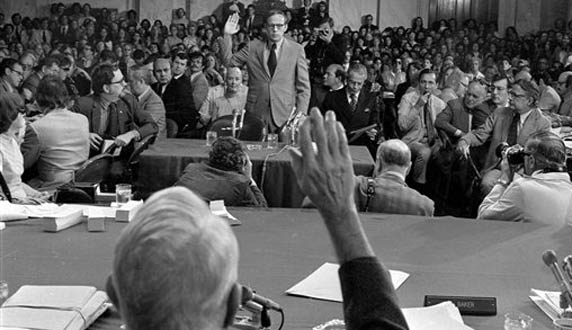
My understanding of literature at this time was: great writing was hard reading. What made something great was you could barely understand it.
... A good literary sentence was like a floor with a hole hidden in it. You dropped into the basement and, scratching your head, thought, "Why'd he say it that way? He must be a really great writer."
From George Saunders essay, Mr. Vonnegut in Sumatra in The Braindead Megaphone.
I could probably just go on writing quotes, or maybe just type out the whole essay, and call it a day. But better, you should just go pick up this book. Of course, Saunders is on my mind, he is always on my mind. But with the pending release of his very first novel, Lincoln in the Bardo, he is even more so.
But in this post, I want to talk about what this essay triggered for me.
Saunders goes on to talk about his first encounter with Vonnegut's classic novel, Slaughterhouse Five. And how at 23, he didn't really get it (even railed against it) – but the book became transformative in so many ways in the future years, especially after he moved out of his Ayn Rand Republican hippy-hating self. And I know from reading his other work, and in interviews, how it took him some time to realize that literature (or better, just great writing) could come out of language that was more easily understood. That language being the kind he grew up with in blue-collar Chicago. Vonnegut also showed him that it was okay to be funny – and that funny, accessible work could be considered great writing, and even, gasp... literature.
One more from the essay:
Humor is what happens when we're told the truth quicker and more directly that we're used to.
Wow. Let's just pause on that one for a while.
...
...
...
Wow.
So here come the similarities... Saunders is a few years older than me, and I didn't grow up in Chicago, or become an engineer. But, I grew up in a place with people who were just people. They didn't have strange exotic lives, where philosophy and science and great art was discussed in some late-night coffee/beatnik club. The works of Kant, Shakespeare, Hemingway, Doris Lessing, or Einstein weren't open discussions at the hockey rink. Or maybe they were, and I just never heard about that. But no, I'd more likely hear the story about the kid that got shit-faced at a bush party, almost fell in the fire, before he went home and combined half a wheat field while he was still three sheets to the wind.
Three sheets to the wind was a favourite expression of my mother's to explain a drunk person. I never knew what it meant (I'm still a little unsure), but it's just wonderful.
Similar to Saunders, when I thought about great literature, the stuff I was forced to read in my Advanced English Class in high school, it was stuff I never really understood... ergo, it must be great. Steinbeck's The Chrysanthemums was a story I recall from this time. What the hell was that all about? In my 20's and early 30's, Steinbeck's work became very important to me. But at 17, I was like, um... what? A side note: I was in advanced English because I always was a reader, and a half-decent writer. But as far as literature, I was a babe in the woods. Back then it was all about writers like P.K. Dick, or Silverberg, or anything with cool sci-fi weird settings (no unicorns and fairies please), or crime guys like Donald Westlake. So when I took a class in Contemporary Literature in college, and the first book on the course list was... wait for it... Slaughterhouse Five. Everything changed.
I can still easily picture where I was when I read that book, in one sitting, on the floor of a drawing studio (I was in art school). I haven't read it in years, but it launched a many-yeared obsession with everything Vonnegut wrote. All of sudden here was a guy writing about aliens (!) in a historical drama (the fire-bombing of Dresden), and speaking directly to the reader with his: Listen...
You mean you could write about that sort of stuff and it was still considered literature? Mind. Blown.
(Except we didn't talk in those declaratives at the time, separated with periods. We as a society came to that much later, and then jumped the shark when recently a certain Press Secretary started telling us stuff was a certain way. Period. And we all had a collective piss shiver. Period.)
I digress. Politically. Period.
And like Saunders, reading Vonnegut made me think about the language that I use in my own writing. This came much later, as I wrote some in college, but didn't start being serious about writing until my late 30's. And my Hemingway boner (Saunder's term) came later, after the Vonnegut one.
When I think of my early attempts, when I wasn't trying to basically pay homage to Hem, I realized there was still the lingering thought that my sentences, my vocab, my syntax all needed a certain amount of complexity – fancy-ass talking if you will, nine-dollar words, and those sentences with a trap door – to be considered actual good writing. The big fat tag of LITERATURE.
George Saunders came along at a time when I was finally realized that those people I grew up with in my small Canadian city talked in a way that was very natural to my ear. For starters, I need to say that those people were me, are me, I am one of them, people, you know? A convoluted reminder to myself to stop distancing myself from that which is my natural upbringing. Just talk natural why dontcha?
There were other writers that showed me that direct, natural language was a road to great writing: Carver, Steinbeck, even Douglas Copeland (who whispered in my ear that it was ok to talk about the world we were experiencing right now.) Add to that the lyricism of Richard Ford, the strange mystery of Marquez, the complexity of DeLillo, and the wonder in great storytellers like Joe Lansdale and James Crumley... and, well, this part I can't quite articulate. But my own language became more natural, more fluid, and the challenge and beauty of some of that second set of writers, called me to make my own language even better. Most important was the harmony of the two.
Getting kinda esoteric here. Should probably add some fart noises, or something that brings this thing back to earth. But I should add that those first set of writers, were also lyrical and complex, but in a whole different way.
I'll end it there before I confuse both of us any further.
My new novel, Fall in One Day, more than anything else I've written has the voice and cadence of the language and people I grew up with. I am very pleased with that. It took quite a while to give myself permission to think that writing this way was okay. I have been called a "literary" writer. Even my forays into crime fiction are called, "literary." At times, I am awkwardly proud of this – the inner voice asking, really... do you think so? I don't have a PHd in medieval studies or anything. And this is just the stuff I heard around the hockey rink. Literary... ok, if you say so. (Fake blush).
But writing what is natural is both the simplest and most complex thing to do. I have now given myself permission to think that I can write the way I write, and some will call it literary (which is more a marketing term than anything).
My actual hope is that they will call it good.
 Friday, March 17, 2017 at 10:46AM
Friday, March 17, 2017 at 10:46AM 







